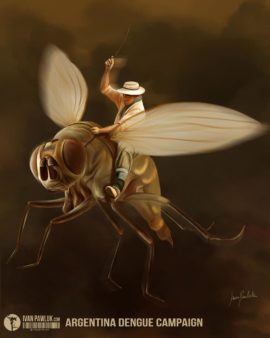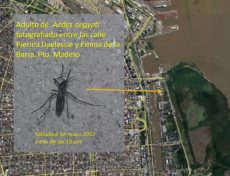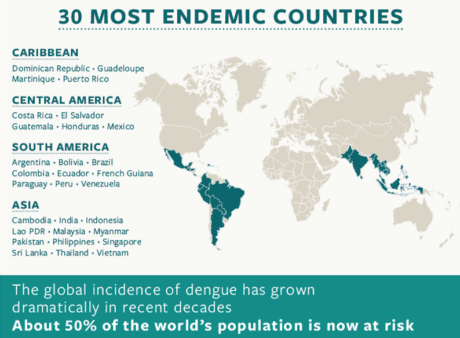- by Alison
Dengue outbreaks in Argentina: how ‘healthy blocks’ are building dengue-free neighborhoods
Dengue outbreaks in Argentina have prompted authorities to engage communities in local mosquito control.

Image by Ivan Pawluk
After major outbreaks in 1998, 2009 and 2016, the people of Argentina are all too familiar with dengue fever. The 2016 outbreak saw 7,000 cases reported in Buenos Aires and inspired the government to take action.
Authorities turned to experts including Nicolás Schweigmann – an Argentinian CONICET researcher, Buenos Aires University teacher and TED speaker. When I met him in Buenos Aires I was struck by the concept of ‘healthy blocks’: neighborhoods where the local community is aware of dengue fever and taking collective action to control mosquitoes.
Managing dengue outbreaks in Argentina
“The real problem with dengue is the fact that people don’t know how to avoid it,” he says. “People here buy sprays to kill the adult mosquito, but once they are adult mosquitoes, it is already too late and they are already too numerous. You have to stop the larvae reaching the adult stage.” He adds that the general public is misinformed about how to avoid the dengue fever: “Prevention is the key.”
 Nicolás and his collaborators found that the mosquito that spreads dengue (Aedes aegypti) tends not to travel far. In fact, research suggests that, in cities, they only travel about 20m to 40m – around the length of a city block. He believes that the reason could be that mosquito might not be as competitive as would be outside the urban environment.
Nicolás and his collaborators found that the mosquito that spreads dengue (Aedes aegypti) tends not to travel far. In fact, research suggests that, in cities, they only travel about 20m to 40m – around the length of a city block. He believes that the reason could be that mosquito might not be as competitive as would be outside the urban environment.
For mosquitoes, cities can be great places to thrive: they can eat fruit or flowers; females can drink blood by biting city-welling humans; and, after fertilization, they can lay eggs in water tanks, flower vases and drains which contain stagnant water. “Removing these factors would be a critical step in breaking the grub mosquito cycle,” Nicolás says.
This is how the ‘Healthy Blocks’ action plan was created. A big communication campaign was rolled out in 2016, urging citizens to join forces against dengue. They formed neighborhood groups to ensure that there were no mosquito eggs in water tanks in their local area. A block free of mosquito eggs is a block free of dengue.
The Health Blocks concept is also being applied to hospitals and schools, where egg-laying areas are being mapped and eliminated. A communication campaign is visible on the street, in airports, on the internet, and especially at bus stations. Cordoba is the perfect example of a city where the dengue campaign can be seen everywhere.
As part of the same campaign, the government together with UNICEF, Red Cross and University of Buenos Aires mosquito researchers (Nicolás Schweigmann and Sylvia Fischer) have created a social collaboration to prevent Dengue.

Image via Malaria Consortium
Looking at the last three dengue outbreaks, the impact of illness has grown exponentially. The 2016 outbreak was a big one. Besides the 7,000 cases in Buenos Aires, it was by far the worst in Misiones and the rest of Northeast. In El Dorado, up to 80% of the population was sick, according to unofficial estimates.
Could a vaccine help?
For Nicolás, Healthy Blocks are a more appropriate solution than the vaccine: “The same mosquito (Aedes aegypti ) can cause Zika, dengue, chikunguña, Mayaro or urban yellow fever,” he says. “The dengue vaccine will not protect you from all these illnesses, but if you stop the mosquito reaching adulthood you can avoid all five diseases.”
Although dengue receives more media coverage than Zika in Argentina, there are already Zika cases here. Late last year the first girl with microcephaly died in Tucumán. “The worst of Zika is still to come in Argentina: a man that has Zika can be infectious for five or six months and transmit it sexually,” says Nicolás. “Even Europe could be affected in future.”
—

